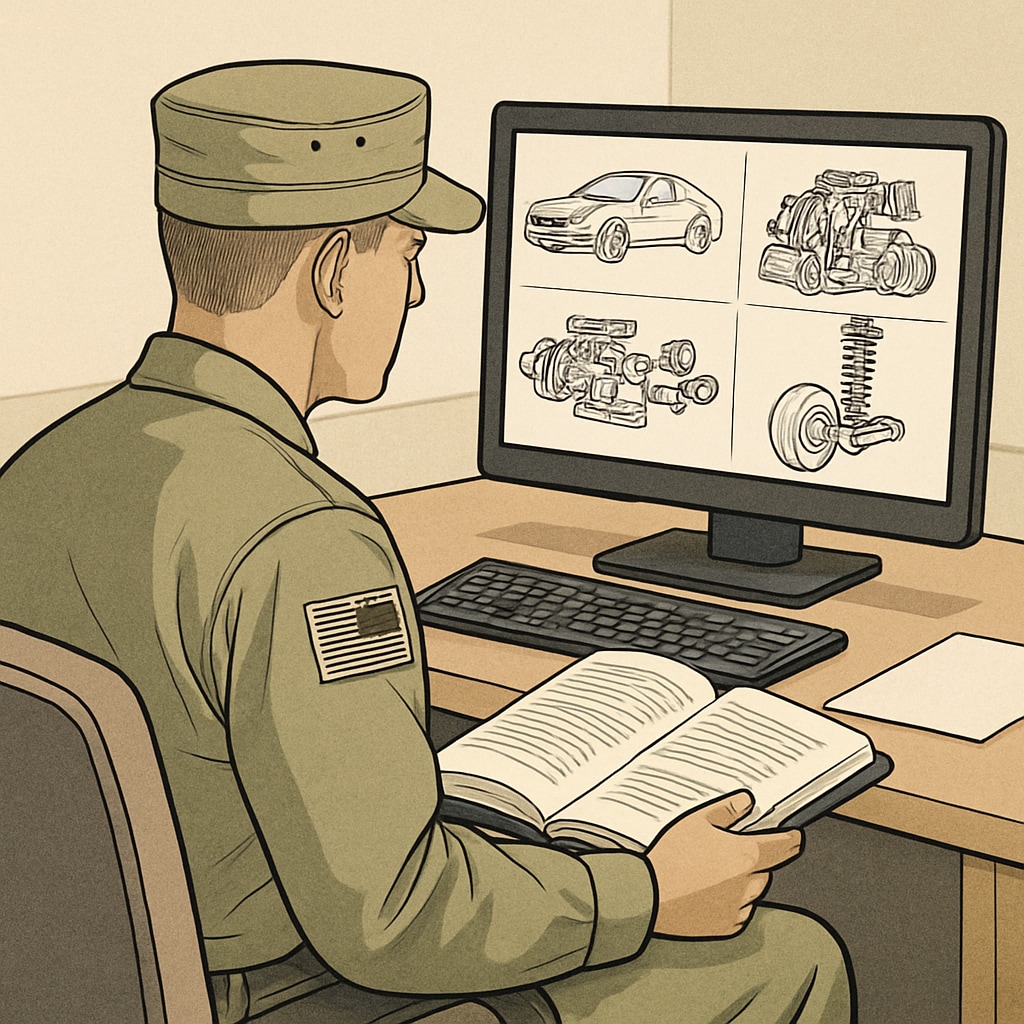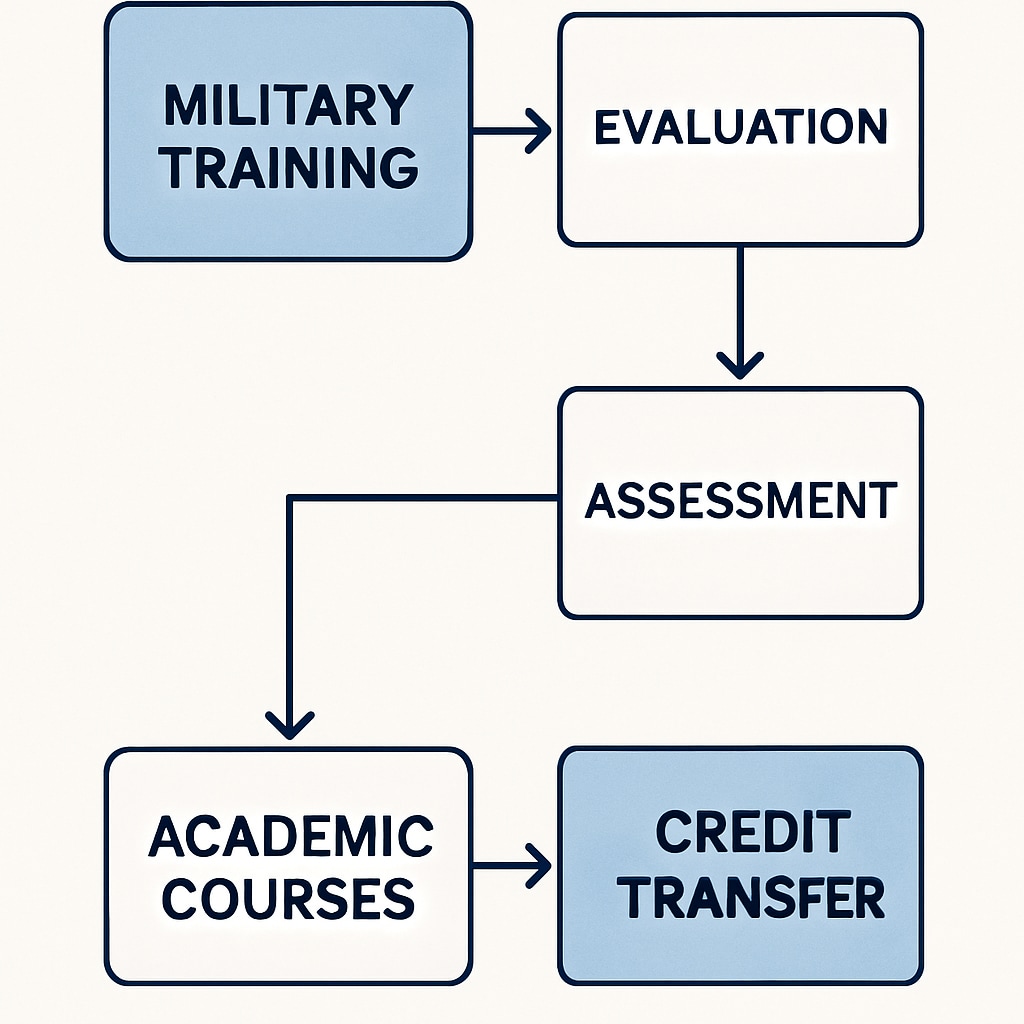For military personnel with an associate degree in automotive technology, pursuing a bachelor’s degree can significantly enhance career opportunities, both inside and outside the armed forces. This article examines how to choose a compatible bachelor’s degree, navigate the credit transfer process, and take full advantage of military-specific education benefits. By carefully planning this academic transition, military members can maximize their existing qualifications and achieve long-term educational and professional goals.

Choosing the Right Bachelor’s Degree
When transitioning from an associate degree in automotive technology to a bachelor’s degree, selecting the right program is crucial. While some military members may wish to remain within the automotive field, others might consider related disciplines to broaden their career prospects. Here are some of the most compatible bachelor’s degree options:
- Automotive Engineering: Ideal for those seeking advanced technical knowledge and a career in vehicle design and manufacturing.
- Mechanical Engineering: Offers a broader scope, covering systems design, material science, and engineering principles applicable across industries.
- Industrial Technology: Focuses on management and operational aspects of technical fields, including automotive services.
- Business Administration: For those aiming to combine technical expertise with managerial roles in automotive or related industries.
Each program has its unique advantages, and your choice should align with both your career goals and personal interests. For example, if you aim to start your own automotive repair business, a degree in business administration might be the most practical choice.
Understanding Credit Transfer and Maximizing Utility
One of the most significant advantages of transitioning from an associate degree to a bachelor’s degree is the ability to transfer existing credits. However, understanding how this process works is vital to avoid losing valuable time and resources.
Most universities have specific policies for accepting transfer credits from associate degree programs. Below are some key strategies to ensure a smooth credit transfer:
- Research Accreditation: Ensure both your associate degree and target bachelor’s program are accredited by recognized agencies. This increases the likelihood of credit acceptance.
- Match Course Content: Compare the syllabi of your completed courses with those in the bachelor’s program to identify transferable credits.
- Leverage Prior Learning Assessments: Many institutions offer assessments to evaluate your professional experience and military training for additional credits.
Additionally, tools like the ACE Military Guide can help translate military training into academic credits. By carefully planning your transfer process, you can save both time and tuition costs.

Leveraging Military Education Resources
As a service member, you have access to unique educational benefits that can support your transition to a bachelor’s degree. Below are some resources to consider:
- Tuition Assistance (TA): Covers up to 100% of tuition costs for eligible courses, reducing your financial burden.
- Post-9/11 GI Bill: Provides funding for tuition, housing, and other education-related costs, making higher education more accessible.
- Scholarships for Veterans: Numerous organizations offer scholarships specifically for military members pursuing degrees in engineering, technology, or management.
In addition to financial support, many institutions offer dedicated advisors for military students. These advisors can help tailor your academic plan to suit your military commitments and career aspirations.
Balancing Education with Military Service
Pursuing higher education while serving in the military can be challenging, but it is achievable with the right approach. Here are some tips to maintain balance:
- Choose Flexible Programs: Look for online or hybrid programs that allow you to study at your own pace.
- Set Realistic Goals: Plan your course load according to your available time and energy.
- Utilize Support Networks: Engage with military-friendly institutions and connect with peers who have similar goals.
By staying organized and leveraging available resources, you can succeed academically without compromising your military responsibilities.
In conclusion, transitioning from an associate degree in automotive technology to a bachelor’s degree is a rewarding step for military personnel. By choosing the right program, maximizing credit transfers, and utilizing military education benefits, you can achieve new heights in your career. Whether you aspire to advance within the military or transition to a civilian role, a bachelor’s degree opens doors to a world of opportunities.


